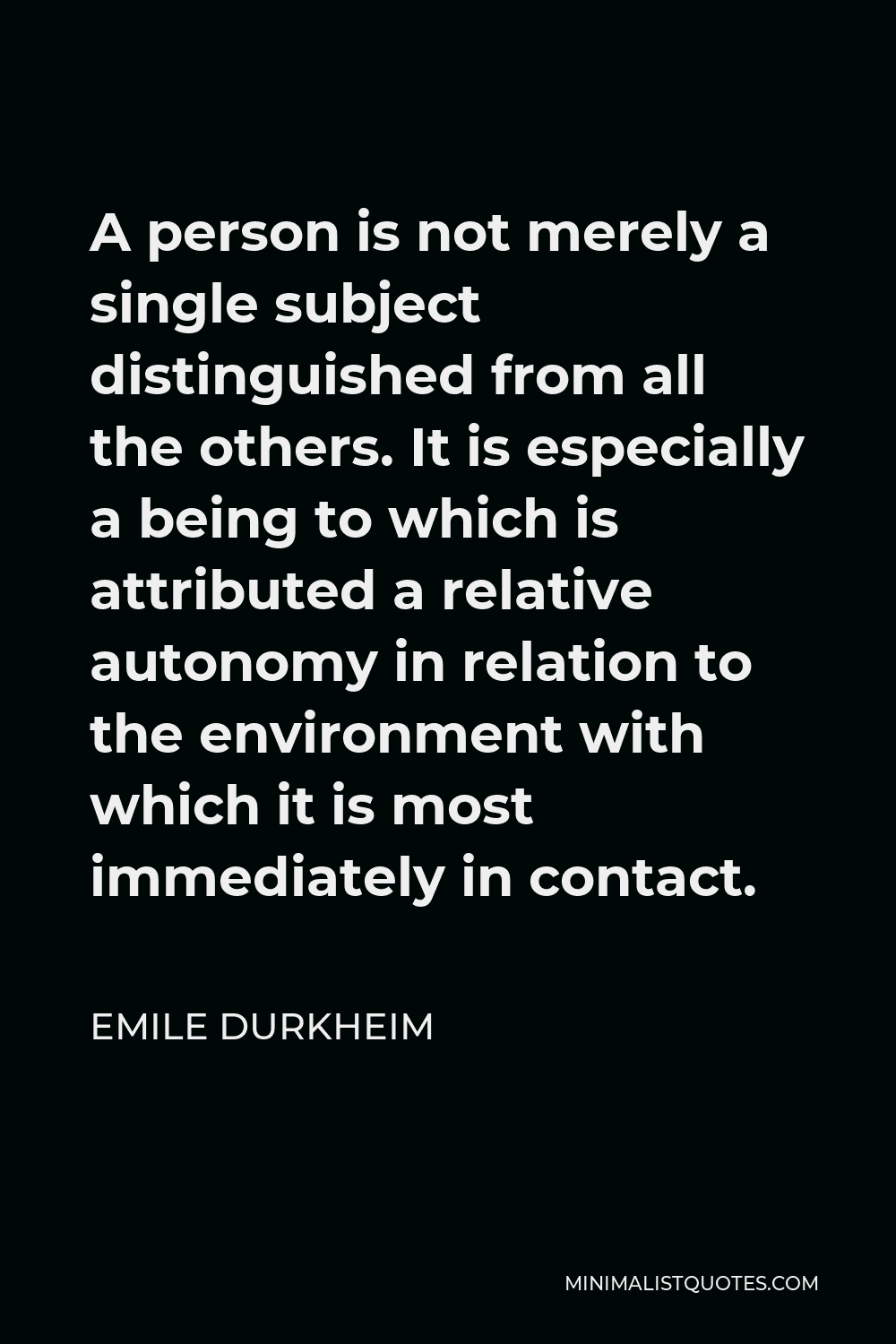Religious representations are collective representations which express collective realities.
EMILE DURKHEIMA person is not merely a single subject distinguished from all the others. It is especially a being to which is attributed a relative autonomy in relation to the environment with which it is most immediately in contact.
More Emile Durkheim Quotes
-





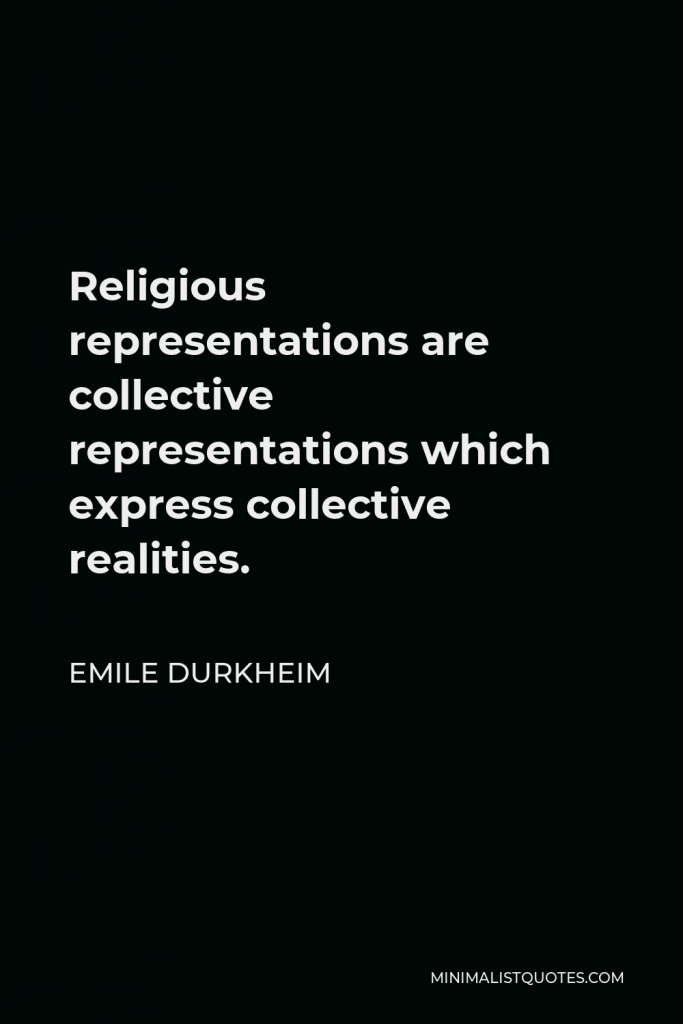

-





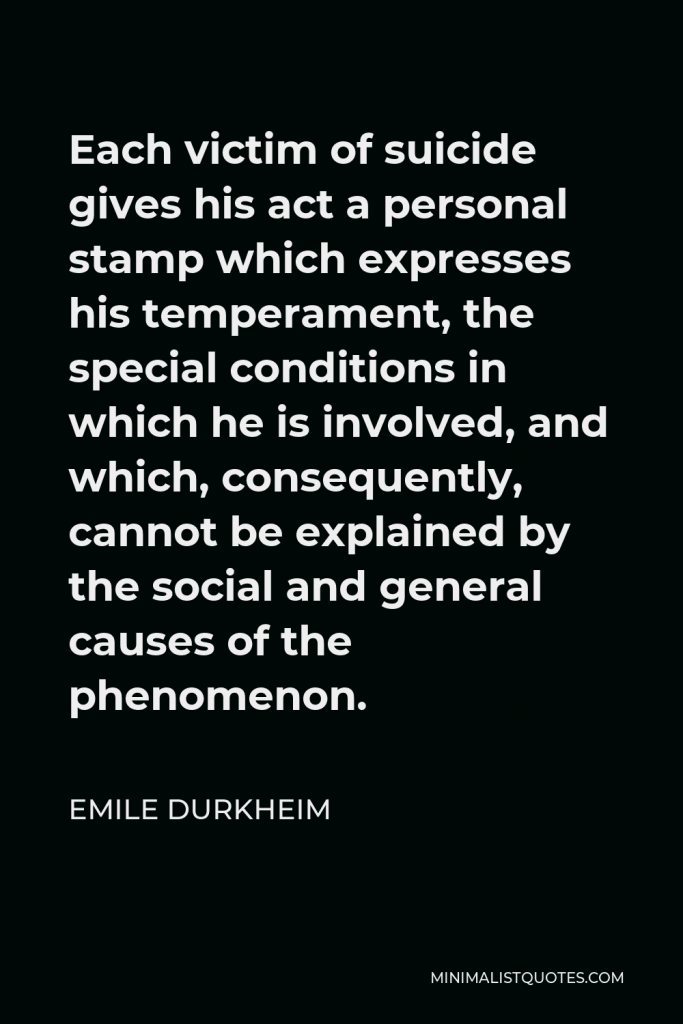

Each victim of suicide gives his act a personal stamp which expresses his temperament, the special conditions in which he is involved, and which, consequently, cannot be explained by the social and general causes of the phenomenon.
EMILE DURKHEIM -





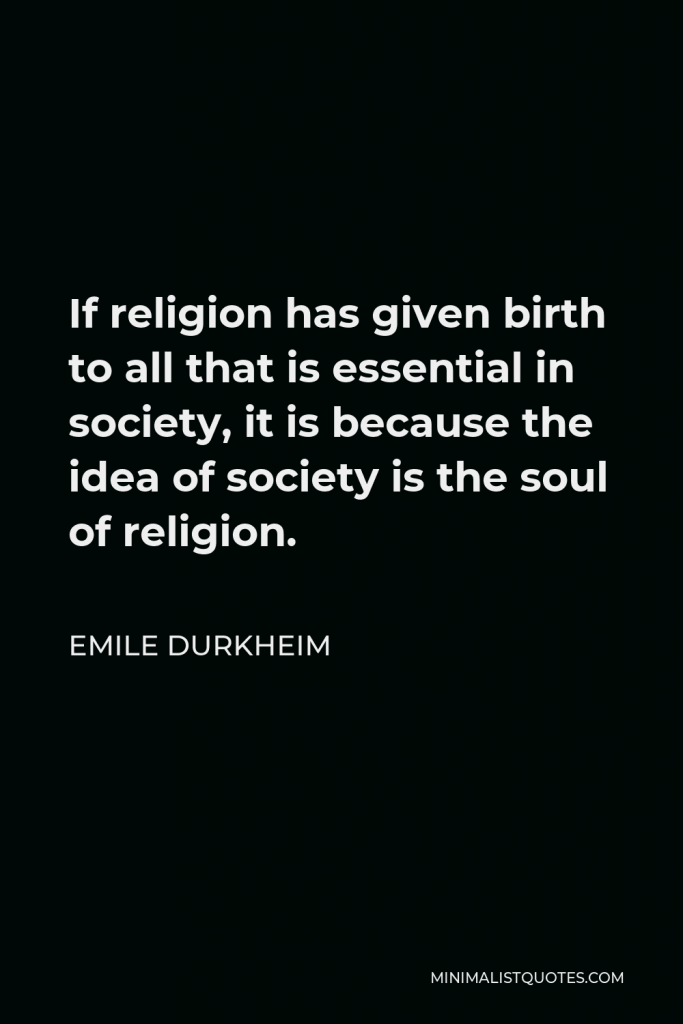

If religion has given birth to all that is essential in society, it is because the idea of society is the soul of religion.
EMILE DURKHEIM -





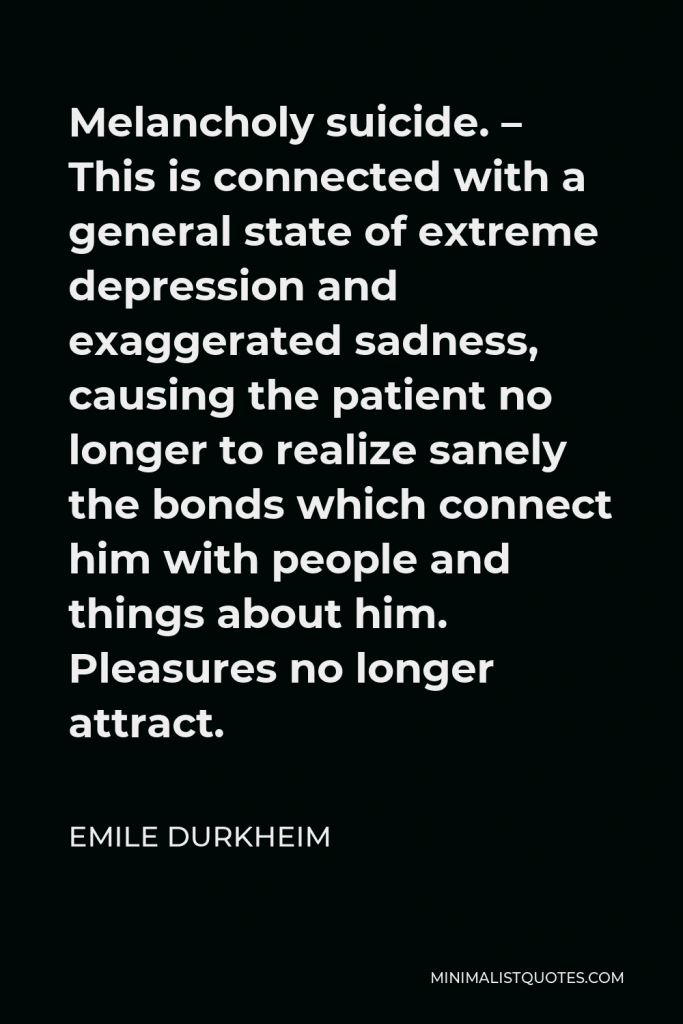

Melancholy suicide. – This is connected with a general state of extreme depression and exaggerated sadness, causing the patient no longer to realize sanely the bonds which connect him with people and things about him. Pleasures no longer attract.
EMILE DURKHEIM -







An act cannot be defined by the end sought by the actor, for an identical system of behaviour may be adjustable to too many different ends without altering its nature.
EMILE DURKHEIM -





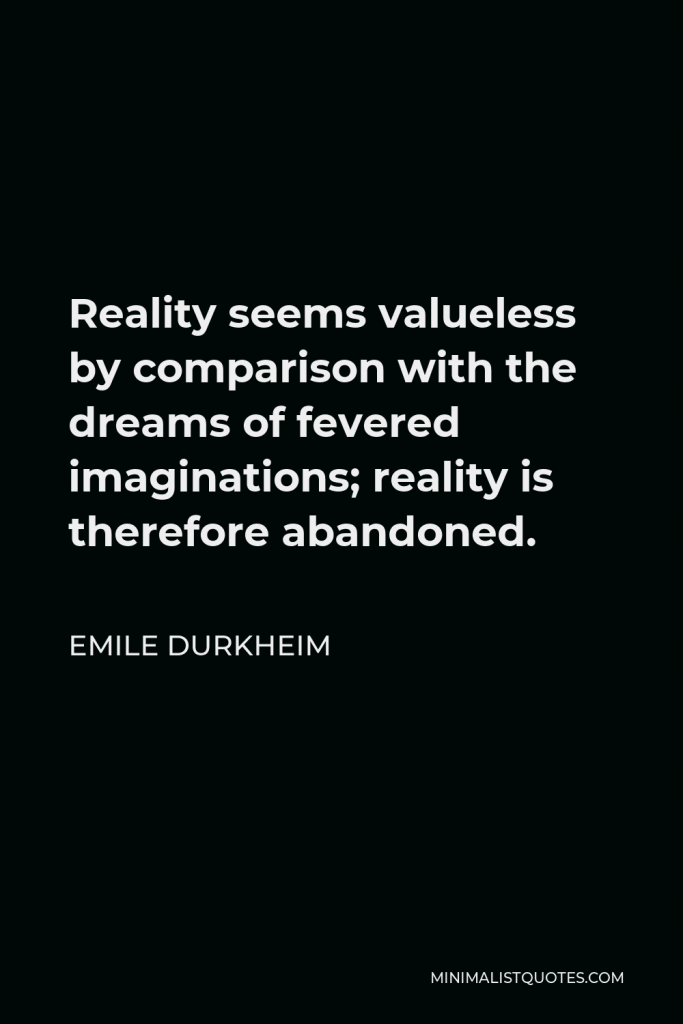

Reality seems valueless by comparison with the dreams of fevered imaginations; reality is therefore abandoned.
EMILE DURKHEIM -





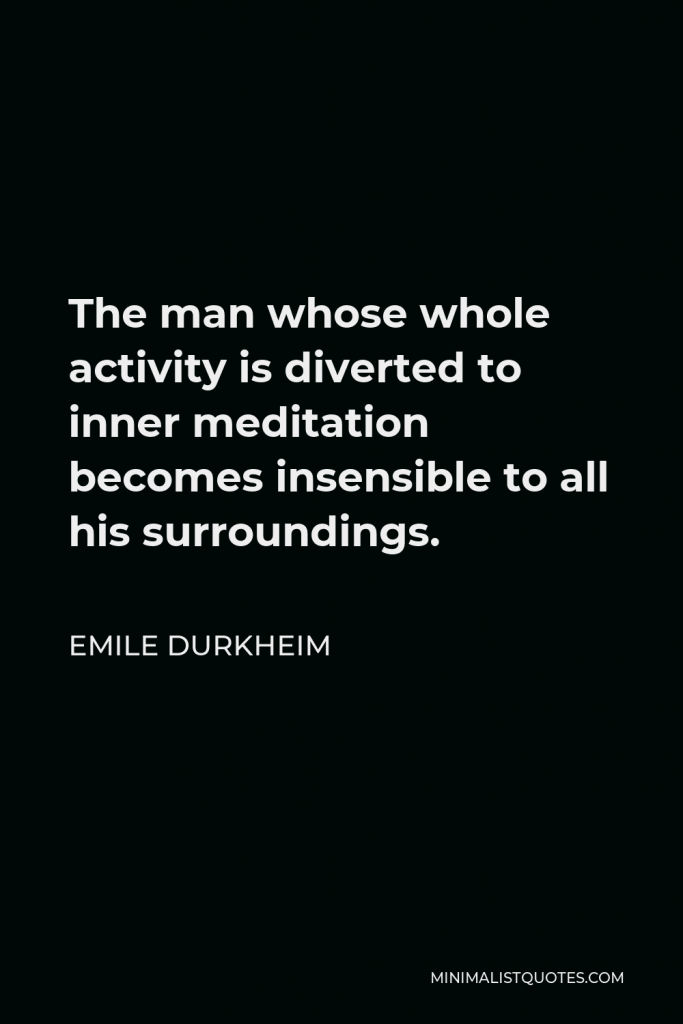

The man whose whole activity is diverted to inner meditation becomes insensible to all his surroundings.
EMILE DURKHEIM -







There is a collective as well as an individual humor inclining peoples to sadness or cheerfulness, making them see things in bright or somber lights. In fact, only society can pass a collective opinion on the value of human life; for this the individual is incompetent.
EMILE DURKHEIM -







Maniacal suicide. -This is due to hallucinations or delirious conceptions. The patient kills himself to escape from an imaginary danger or disgrace, or to obey a mysterious order from on high, etc.
EMILE DURKHEIM -







By definition, sacred beings are separated beings. That which characterizes them is that there is a break of continuity between them and the profane beings.
EMILE DURKHEIM -





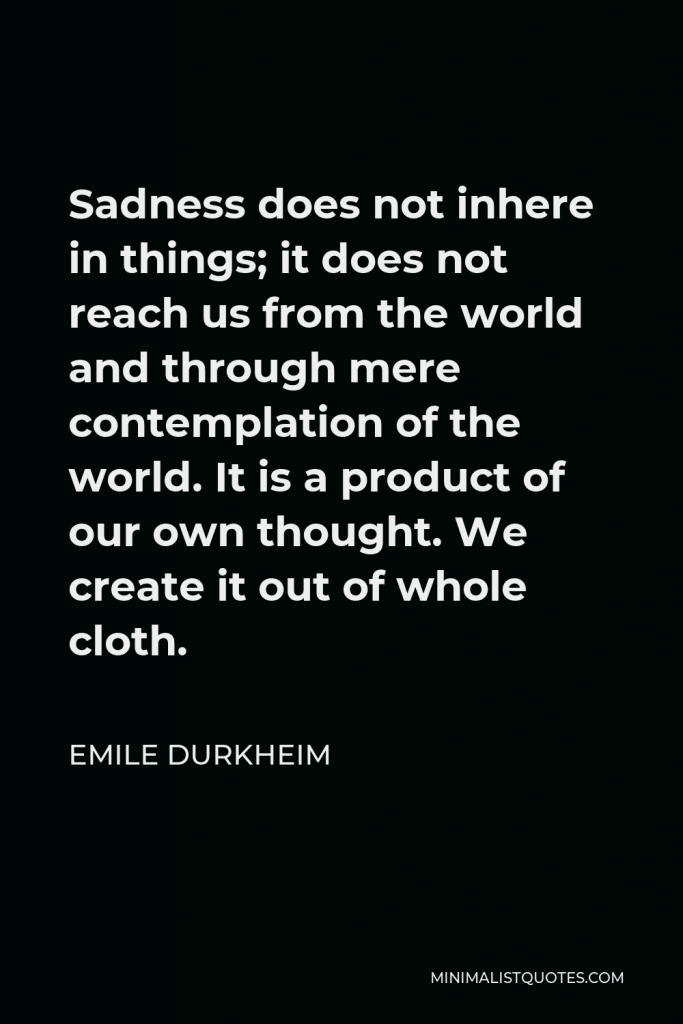

Sadness does not inhere in things; it does not reach us from the world and through mere contemplation of the world. It is a product of our own thought. We create it out of whole cloth.
EMILE DURKHEIM -





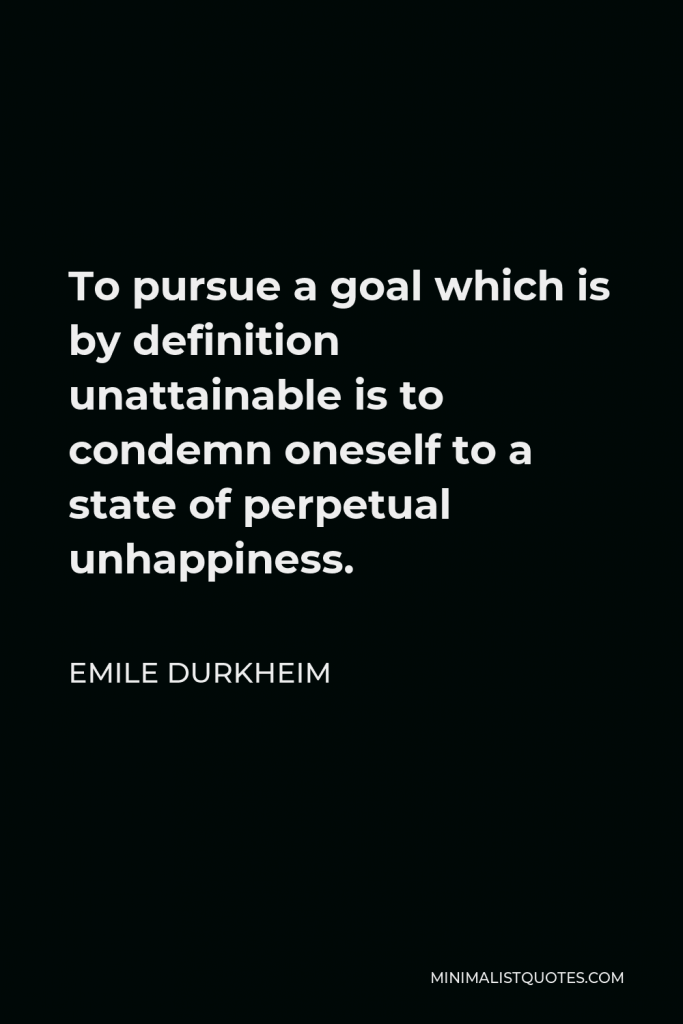

To pursue a goal which is by definition unattainable is to condemn oneself to a state of perpetual unhappiness.
EMILE DURKHEIM -







There is no sociology worthy of the name which does not possess a historical character.
EMILE DURKHEIM -





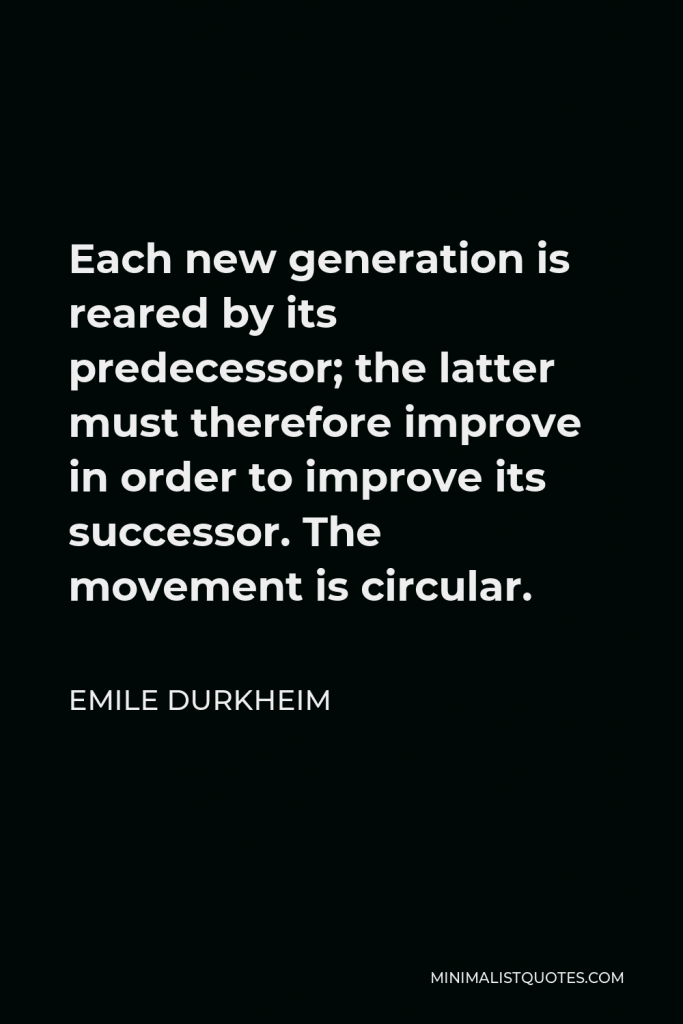

Each new generation is reared by its predecessor; the latter must therefore improve in order to improve its successor. The movement is circular.
EMILE DURKHEIM -







When morals are sufficient, law is unnecessary; when morals are insufficient, law is unenforceable.
EMILE DURKHEIM -





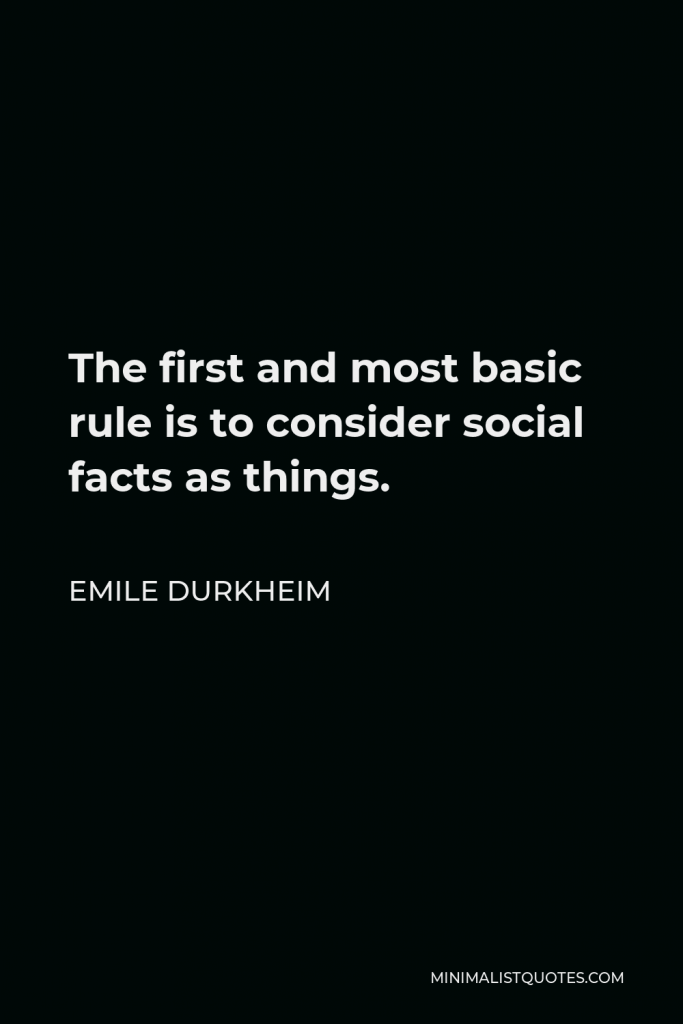

The first and most basic rule is to consider social facts as things.
EMILE DURKHEIM
